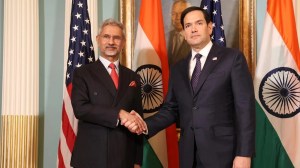PPF cut 8212; ICICI drops bond issue
MUMBAI, JAN 15: ICICI Ltd has decided to withdraw its prospectus for a proposed bonds issue, after the government announced a cut in the i...

MUMBAI, JAN 15: ICICI Ltd has decided to withdraw its prospectus for a proposed bonds issue, after the government announced a cut in the interest rates of public provident fund and small saving schemes on Friday.
8220;We feel that the government has indicated lower interest rates and so we have decided to withdraw the prospectus for the issue which was slated to open on January 17,8221; said an ICICI official. The issue was for unsecured redeemable bonds in the nature of debentures aggregating Rs 300 crore with a right to retain oversubscription up to Rs 300 crore.
The three-year tax-free bonds were to offer investors a coupon of 11.7 per cent and the regular three-year bonds gave interest at the rate of 11.75 per cent. The government had on Friday cut the benchmark interest rates on some government-run savings schemes, clearing the way for banks to review their deposit and lending rates. The interest rate on public provident fund PPF deposits was cut to 11 from 12. 8220;This change effects us particularly because PPF is a retail product like our bonds. We will be filing a fresh prospectus shortly,8221; ICICI officials said.
UNIONS PROTEST: Trade Union organisations today described the government8217;s decision to reduce the interest rate on small savings schemes and public provident fund from 12 to 11 per cent as a 8220;blow to the interests of the common man8221;. The Centre of Indian Trade Unions CITU said the decision was 8220;dictated by big business corporates in the country8221;. 8220;The move will hit hard the small investors, particularly the senior citizens, who prefer these investments for safety of their hard-earned superannuation benefits,8221; CITU secretary W R Varada Rajan said in a statement today.
The CITU said this 8220;retrograde8221; move by the government would lead to diversion of people8217;s savings to private debt and equity options.
8220;Unscrupulous and speculative private finance companies will flourish as a result of the government decision,8221; it said. Varada Rajan said mobilisation of small savings for the government schemes had been one of the main sources of state governments in their bid to manage their budget deficits. 8220;The government move will thus hit the state governments very hard,8221; he said while demanding that interest rates be restored to pre-1999 levels.
The CITU had resented the S A Dave committee interim report recommending diverting part of provident and pension funds to speculative equity market. 8220;The final report also has apparently laid emphasis on channelising pension funds for investment in corporate bonds and index funds-related shares which is totally unacceptable to the trade unions,8221; CITU said. The trade union body urged the government not to accept any recommendation of Dave committee in so far as they relate to the provident and pension funds.
The All India Kisan Sabha AIKS said the decision to reduce the interest rates would be a disincentive for small savings causing loss of billions of rupees to the public exchequer and demanded the restoration of status quo ante.
Meanwhile, the analysts said the move has shrunk individuals8217; wealth creation. The Indian Merchants8217; Chamber IMC hoped banks will lower the lending rates as well by one per cent, so that industry, trade and other productive sectors can take advantage of cheaper finance to cut cost and generate efficiencies.
Investment analysts Malini Sanghvi of Securities Pvt Ltd, however, pointed out that the cut in interest rate on PPF has come as a big disappointment because it has eroded an individual8217;s wealth by more than 24 per cent.The broking firm said if an individual invested Rs 1,000 per month in PPF from the time he commenced employment at age 20, till the time of his retirement at 60 years, he would have got Rs 92 lakhs, but with the rate cut, the maturity value would work out to only Rs 70 lakhs. IMC president Pradeep Chinai claimed the measure is expected to spur people to spend more on consumer and durable products, thus giving a fillip to the sluggish markets.
- 01
- 02
- 03
- 04
- 05































